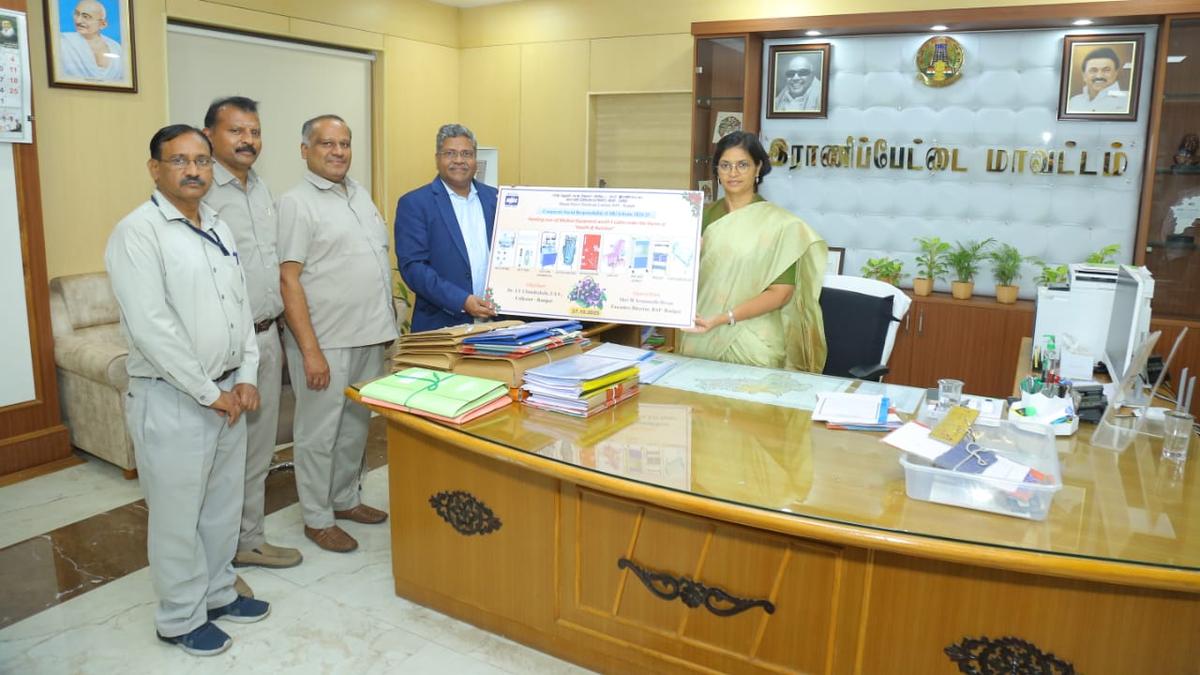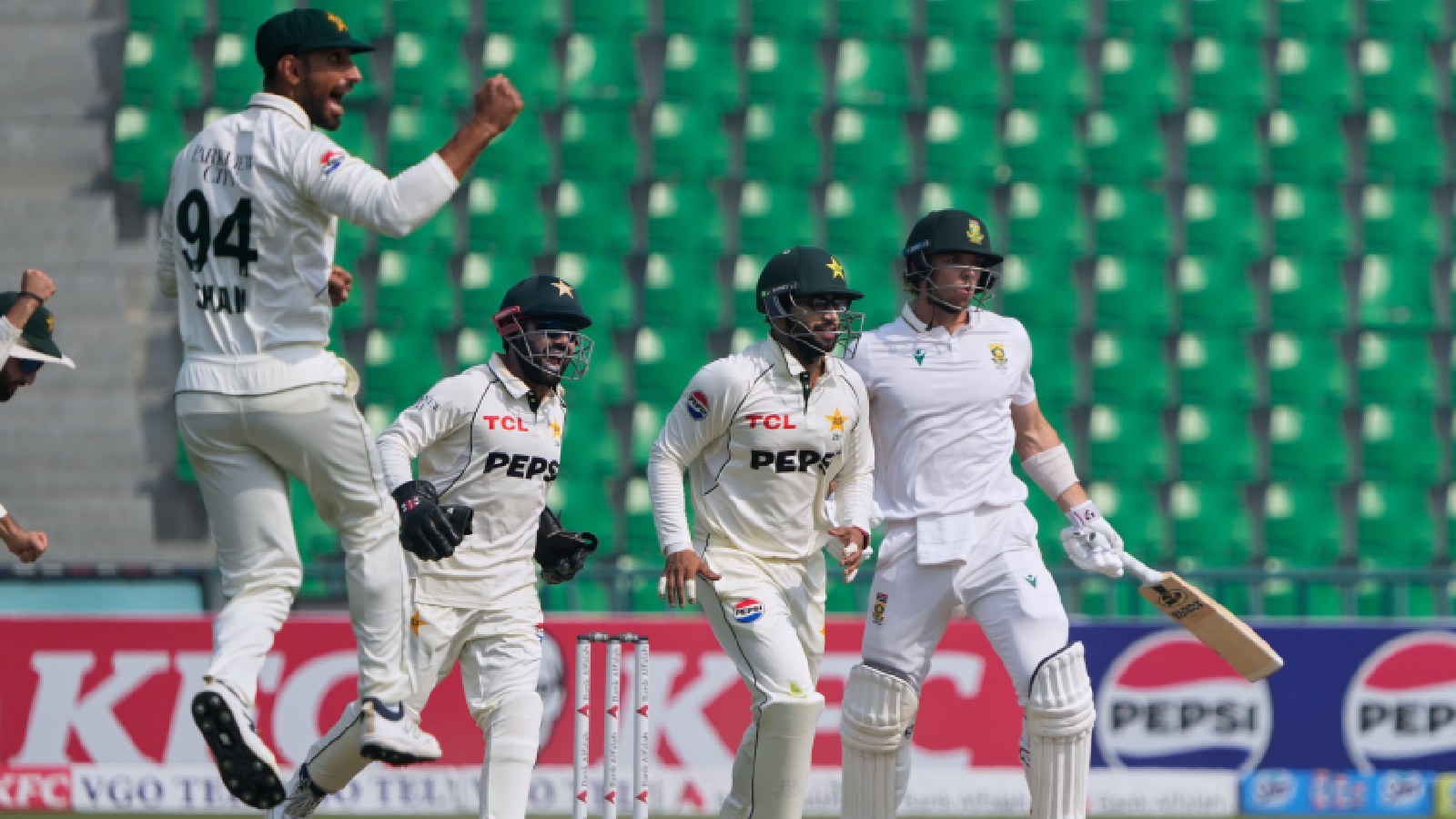The Mahagatbandhan’s decision to project Mallah leader and Vikashsheel Insaan Party (VIP) president Mukesh Sahani as its deputy chief ministerial candidate has drawn a mixed response from the community. The Mallahs, an Extremely Backward Class (EBC) constituting around 2.6% of Bihar’s population according to the latest caste survey, remain divided between the ruling NDA and the Opposition alliance.
Mr. Sahani, who calls himself the “Son of Mallah”, claims he can consolidate the community’s vote. The Mahagatbandhan, led by the Rashtriya Janata Dal (RJD), keen to woo EBCs — traditionally loyal to Nitish Kumar — had hoped Mr. Sahani’s nomination would be a game-changer, with its impact trickling beyond the Mallahs. But so far, it has not triggered a significant shift in voter allegiance.
Read: Bihar elections LIVE
At Darbhanga’s fish market, where Chhath bhajans are blaring from the speakers at the ghat and the persistent honking of vehicles negotiating traffic in the nearby road makes for an earsplitting symphony, Sushil Sahani, like many of his caste-compatriots, is a fish trader. October and November are particularly good months for him, when he manages to catch prawn which is sold for up to ₹800-900 per kilogram. He cuts off the speakers as he settles comfortably on the wooden bench overlooking the ghat to discuss the elections.
“We want change,” Mr. Sushil says. But the change is not so much about who will come to occupy the Chief Minister’s post in Patna, but more about overthrowing the incumbent legislator from Darbhanga Assembly constituency, BJP’s Sanjay Saraogi, who has won four consecutive elections since 2005. Mr. Sushil voted for the BJP leader in the last elections. He clarifies that his latest decision is not linked to Mahagatbandhan’s move to nominate Mukesh Sahani as its deputy chief ministerial candidate.
“Umesh Sahani (the VIP’s candidate for Darbhanga) filed his nomination on October 17, the last day for nominations. I had decided long back that I would not vote for Sanjay Saraogi,” he says. He is not very familiar with Mukesh Sahani. “He came from Mumbai. I heard he worked in films there,” Mr. Sushil says. He has never heard the VIP chief’s speeches or seen him in person. “I have no time to pore over my phone. Where will I hear him,” he asks.
Mr. Sahani, a school dropout, left Bihar when he was 19 for Mumbai where he worked in Hindi films, climbing the ranks to become a set designer. While his political party, VIP, is only seven years old, he has been trying to carve out a political space for himself since 2010 when he began the Sahani Samaj Kalyan Sanstha.
There are many who would rather take comfort in what is familiar. Joginder Shahani, a daily wage labourer, is clear, the BJP legislator is seen around but the VIP’s candidate from Darbhanga is contesting his first election, with no previous political background.
“They (the government) have provided buniyadi suvidha (basic amenities). Plus, I have voted for the BJP for a long time, I don’t see why I should change now,” he says. He lists the achievements of the Nitish Kumar government – the Darbhanga AIIMS, bypass road, regular power supply and so on – to justify his choice. The rapid urbanisation in Darbhanga is taking its toll, with piling garbage, narrow roads and long traffic jams, but Mr. Joginder is all for “vikas” (development).
The local RJD leadership is not perturbed by the lukewarm response. At Mr. Umesh’s election office, Mohan Yadav introduces himself as the local RJD spokesperson. “This seat has 32,000 Mallah voters. Even if we manage to wean one third of them, we will win,” he says. In 2020, the victory margin for BJP’s Mr. Saraogi was a little over 10,000 votes.
Professor Mohammed Sajjad who teaches modern history at Aligarh Muslim University and has written extensively on Mallahs, says that the reason Mukesh Sahani fails to enthuse the voters is because despite 10 years in politics in Bihar, he is not yet relatable to the electorate. “The Mallahs have low numerical strength and traditionally they have been electorally divided reducing their bargaining power with the government of the day,” he said.
The only time the Mallahs did manage to become an influential bloc was under Captain Jai Narain Prasad Nishad, who switched parties regularly but still managed to get elected from the same seat five times. “Jai Narain Nishad had the capacity to get Mallahs to vote the coalition he is with, but Mukesh Sahani does not wield the same influence,” says Professor Sajjad.

 8 hours ago
4
8 hours ago
4








 English (US) ·
English (US) ·